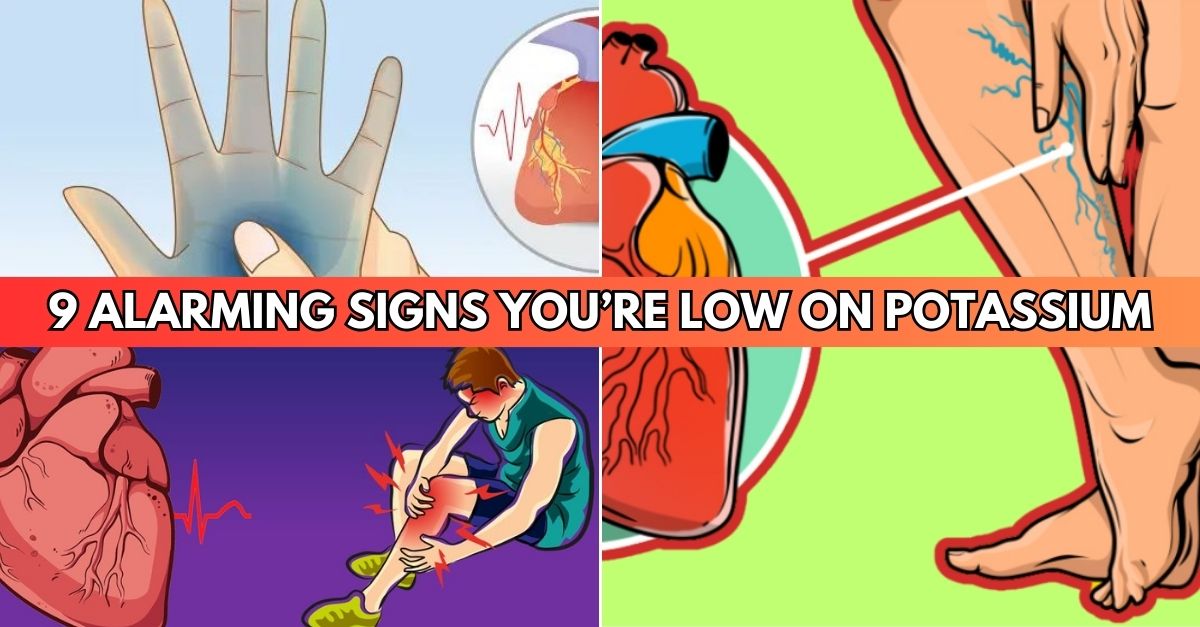Your body requires a range of vital nutrients to function properly, yet many people overlook this, which can lead to serious health issues. For instance, persistent fatigue should prompt you to evaluate your health. If you constantly feel weak and notice significant swelling in your ankles and hands, it may be a sign that your body isn’t receiving enough potassium.
Potassium is an essential mineral and electrolyte that plays a crucial role in muscle function, including movement. Without sufficient potassium, your body could suffer in many ways.
Most of the body’s potassium is stored within cells, and even small imbalances in potassium levels outside the cells can disrupt the function of muscles, nerves, and the heart.
A lack of potassium, or potassium deficiency, can cause various symptoms as your body signals that something is wrong.
Initially, symptoms might be mild and easy to overlook, but left untreated, potassium deficiency can lead to more severe problems, affecting your muscles, kidneys, digestive system, nerves, and heart. Muscle weakness, tiredness, or cramps in the arms or legs can range from mild to severe, sometimes even resembling paralysis.
Common Symptoms of Low Potassium:
- Muscle weakness, fatigue, or severe cramping
- Irregular heartbeat (arrhythmia)
- Tingling or numbness
- Nausea or vomiting
- Stomach pain and bloating
- Constipation
- Fainting, typically due to low blood pressure
- Changes in mood or mental state (depression, confusion, psychosis, or hallucinations)
- Swelling in the face, feet, ankles, or abdomen
While these symptoms aren’t always tied to potassium deficiency, it’s important to consult your doctor if you experience any of them.
Causes of Potassium Deficiency
One of the main causes of low potassium levels is a poor diet lacking potassium-rich foods. Other factors, like diarrhea, dehydration, and excessive sweating, can also contribute to a drop in potassium.
If you exercise regularly, it’s a good idea to stay hydrated with electrolyte-rich drinks to prevent dehydration. However, the best method is to consume foods high in potassium.
Related topic: The Truth About Magnesium Deficiency—Is It Sabotaging Your Health?
Certain medications, particularly diuretics, can lower potassium levels because they cause the body to expel fluids more effectively, which can also lead to the loss of electrolytes.
Another common reason for potassium deficiency is the frequent consumption of processed foods, which lack the essential nutrients your body needs. Getting enough potassium isn’t difficult if you choose the right natural foods.
How to Prevent Potassium Deficiency
The most effective way to avoid potassium deficiency is to adopt a potassium-rich diet. Besides being high in potassium, these foods offer other health benefits. Here are five potassium-packed options:
- Kidney beans: 600 mg of potassium per ¾ cup
- Sweet potatoes: 500 mg of potassium per ½ cup
- Chard: 510 mg of potassium per ½ cup
- Halibut: 430 mg of potassium per 75 grams
- Bananas: 420 mg of potassium per medium banana
Incorporating these foods into your daily diet can significantly reduce the risk of developing potassium deficiency.
Popular post: Oncologists Warn: These 8 Foods Are Secretly Raising Your Cancer Risk




